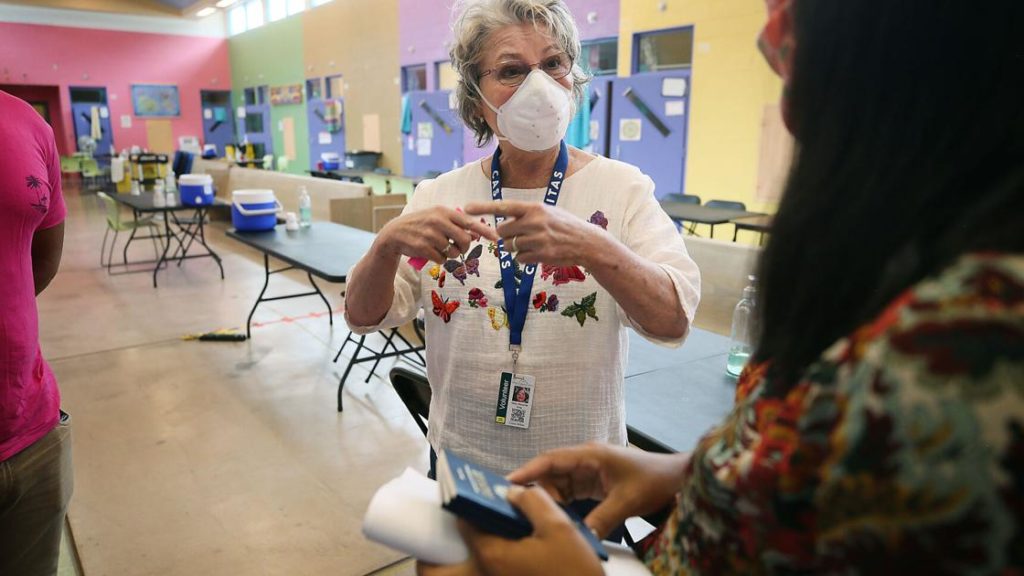She also tells of the day, just before Christmas, when some 20 men, women and children were stranded outside the shuttered Greyhound station because highways east were too icy for buses to travel. King took them home. Between her home and her guesthouse, she put them all up — including a newborn infant.
“I never had a more meaningful Christmas,” she says.
Local facilities and Casa Mariposa capabilities, however, got overwhelmed as the Border Patrol flooded Tucson and Phoenix with greater numbers of asylum seekers. On Memorial Day 2014, when ICE flew 400 migrants — mostly women and children — from Texas to Tucson, activists called in the press. That garnered national attention and got them help.
Catholic Community Services stepped in and formalized Casa Alitas.
These days in Casa Alitas, scores of “incredible, wonderful people” are at work. When families are delivered by ICE or the Border Patrol to Casa Alitas, volunteers greet them, help them connect with U.S. families, and explain travel arrangements. The migrants can rest, shower, care for children, and, if necessary, stay the night. They’re given clean clothing and travel bags containing food, water, toiletries, children’s necessities and blankets. They even get small toys for extended trips.
Recalling the controversy when Casa Alitas moved out of the Benedictine Monastery into the juvenile court center — when people complained the setting would be too much like detention — King says, “ they should really see it”: Casa Alitas is welcoming — clean, bright, colorful, full of art.

